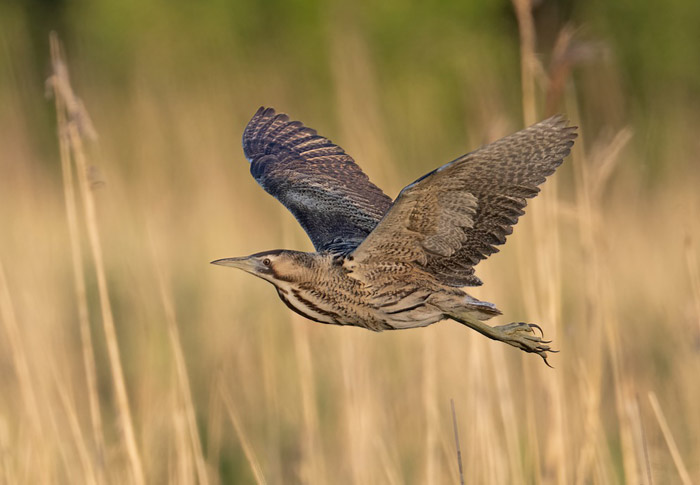(Photo above of a bittern by Henk van Dorp from Pixabay)
A round-up of environmental news that’s been overlooked recently.
By Colin Serjent
Rare bitterns make noisy re-entry
Britain’s loudest bird is making noise on Merseyside after breeding in Sefton for the first time in 200 years.
Bitterns, which are among the rarest avian species in the UK, almost went extinct in the 1990s because of habitat loss, falling to a low of 11 breeding males.
Bitterns live in reeded and marshy areas, feeding on amphibians, insects and fish.
Big increase in hen harrier numbers
Hen Harriers have had their most successful breeding season in England for 50 years, raising hope that the population of the endangered birds of prey could be recovering.
The success of the 2021 breeding year will be seen as a vindication of a controversial brood management plan. Natural England has been working with grouse moor managers to remove hen harrier chicks from their nests on moors and rear them in captivity, if there are multiple nests on one site.
Big Jake dies at 20
The world’s tallest horse has died aged 20. Big Jake lived on Smokey Hollow Farm in Poynette in Wisconsin. The Belgian breed was 6ft 10in tall.
Tree species under threat
Nearly one in three tree species are at risk of extinction, largely due to agriculture, logging and livestock farming. The Menai whitebeam, of which there are 30 in North Wales, is on the brink, according to the first “state of the world’s trees” report. Magnolia, oaks, maple and ebonies are also among those at risk.
Four-legged whale fossil found
Scientists have discovered a new species of four-legged whale that lived around 43 million years ago.
A partial fossil of the creature was discovered in Egypt’s West Desert and named Phiomicetus anubis because of its skull’s resemblance to that of the jackal-headed god of death Anubis.
Like hippos, whales evolved from four-legged hoofed animals that lived on Earth around 50 million years ago.
Pigs may have to be destroyed
Tens of thousands of pigs are at risk of being culled as the sector struggles with staff shortages at meat processing plants.
The National Pig Association said that more than 70,000 pigs have already been “rolled” – when animals are ready for slaughter but there is no means to do so – and may have to be destroyed.
A severe shortage of workers, difficult trading conditions, and rising feed prices due to poor crop harvests around the world have put the pork industry in crisis.
Record number of osprey fledglings
A Northumberland forest have reported a record number of osprey fledglings this year.
Ospreys were reintroduced to Northumberland in 2009, having disappeared two centuries before.
